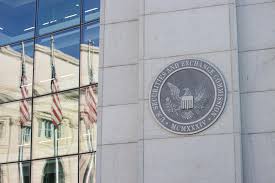The Deere SEC FCPA Settlement: A Textbook Case of Expense Abuse (Part I of II)

The SEC’s recent settlement with Deere & Company for $9.9 million for FCPA violations is another textbook example of bribery schemes, which revealed the absence of a culture of compliance, and the circumvention of basic entertainment, hospitality and travel expense controls.
Deere’s bribery scheme involved its Thailand subsidiary, Wirtgen Thailand, and various improper payments to government officials, including cash, sham consulting fees, extravagant “factory visit” trips to foreign countries, meals, entertainment at massage parlors, and other payments. Wirtgen’s illegal payments were made to officials at multiple government entities, including the Royal Thai Air Force and the Department of Highways to secure valuable business contracts.
Deere acquired Wirtgen, a German company, in 2017. Wirtgen’s schemes were executed by Wirtgen Thailand, Wirtgen subsidiary, through former high level regional managers and employees. The SEC specifically cited an important cause — Deere’s failure to integrate the full integration of the acquired subsidiary, Wirtgen, into its compliance program and control environment.
Deere earned approximately $4.3 million from bribery payments.

Wirtgen’s Thailand subsidiary’s bribery schemes involved illegal payments to: (1) Department of Rural Roads (“DRR”), a department of the Thai government under the Ministry of Transport, and oversees the maintenance of rural roads in Thailand; (2) Department of Highways (“DOH”), a department of the Thai government under the Ministry of Transport, which is responsible for the maintenance of national highways in Thailand; (3) Royal Thai Air Force (“RTAF”), which is the air force of the Kingdom of Thailand; and (4) Customer A, a private company that handles construction, project management, and design of large-scale infrastructure projects in Thailand.
To secure tenders with the government agencies RTAF, DOH and DRR, Wirtgen engaged in bribery by entertaining government officials at massage parlors, hosting officials on elaborate sightseeing expeditions disguised as “factory visit” trips, and making cash payments to officials both directly and through the use of a third-party agent. These payments were in violation of company policies and were falsely recorded on the company’s books and records as legitimate expenses.
Deere’s failure to fully integrate Wirtgen Thailand into its existing internal control system contributed to its failure to devise and maintain a sufficient system of internal accounting controls with respect to employee expense reimbursements, third party payments, and gifts, travel, and entertainment.
Deere implemented prompt remediation and cooperated with the SEC’s investigation. Deere’s cooperation included providing translations of certain relevant documents, making current and former employees available to the Commission staff, including witnesses located overseas, and timely providing the details of facts developed during its internal investigation, including the sharing of forensic accounting analysis, relevant emails and company documents, and information pertaining to current and former employees.

Deere’s prompt remediation included termination of employees responsible for the misconduct and initiating significant improvements to its internal audit and compliance programs. Deere revised its Code of Business Conduct, including its anti-bribery and corruption and travel policies, and introduced new compliance initiatives, including the circulation of a companywide bi-monthly compliance newsletter and a new podcast dedicated to discussion of compliance issues. Deere also increased training on anti-bribery issues. Deere has also undertaken an analysis of its compliance program and continues to make improvements utilizing anticorruption risk assessments, internal audits and enhanced internal accounting controls related to third party management.















